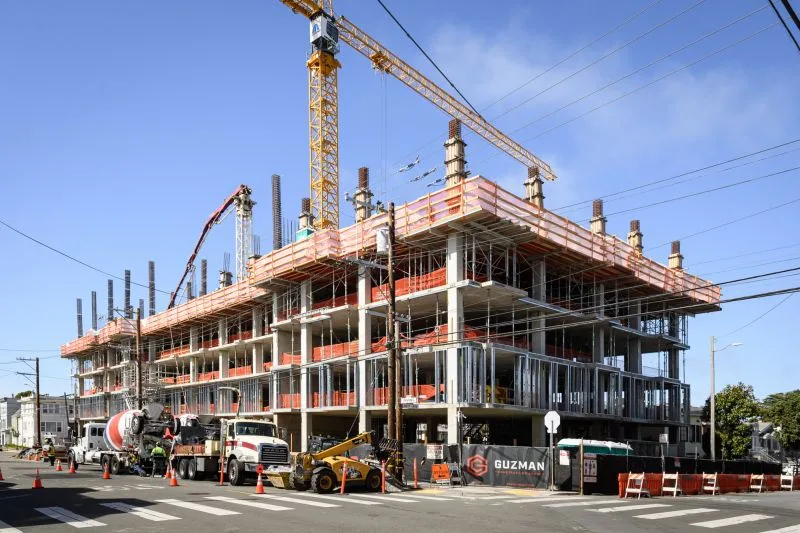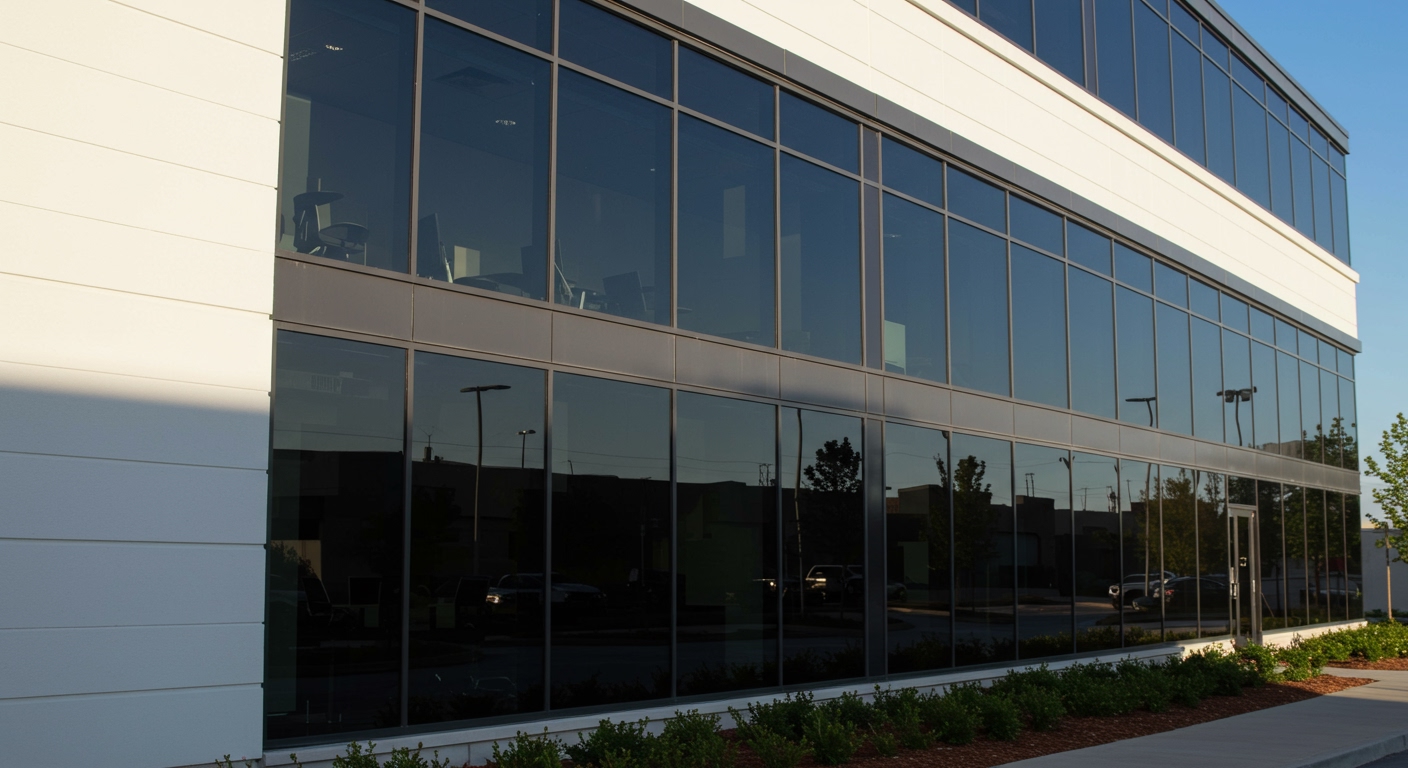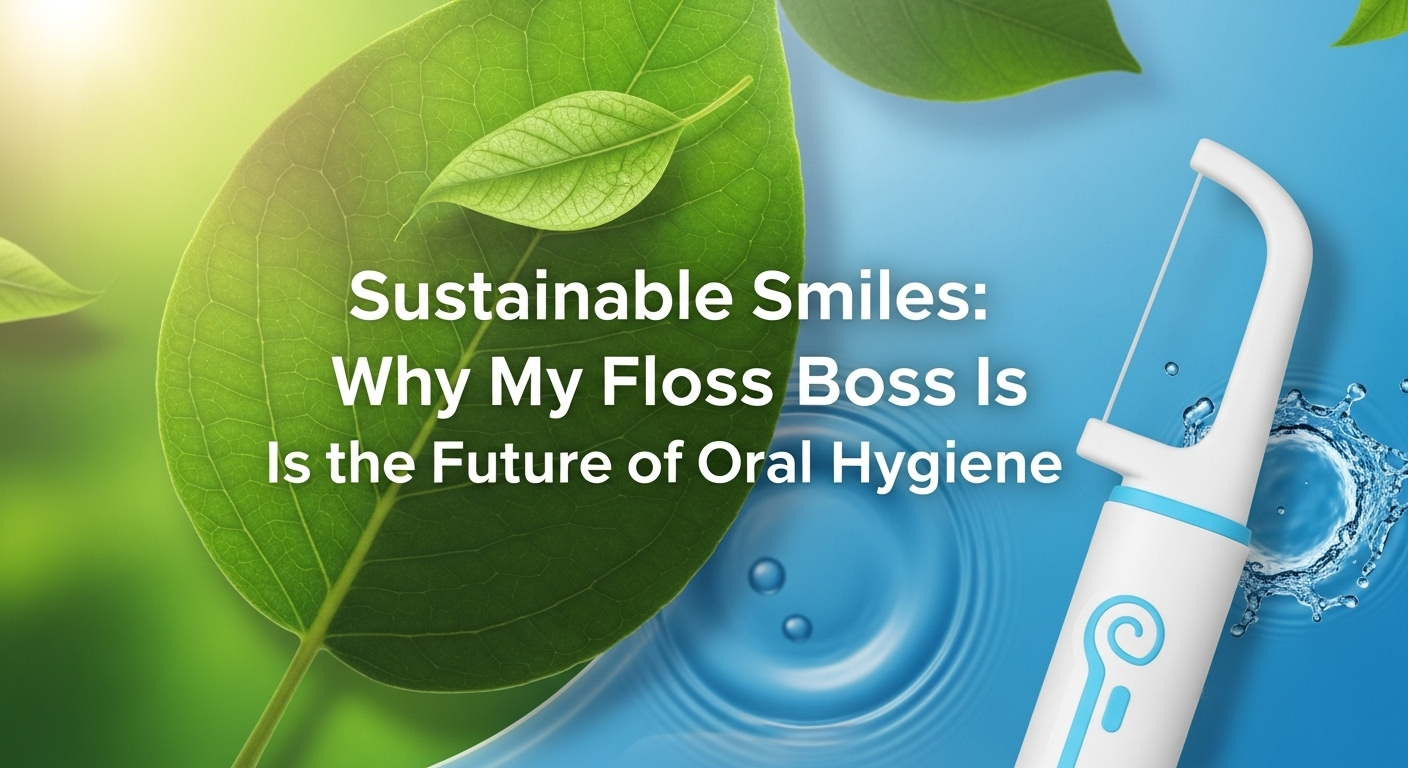Commercial window tinting is a powerful solution for businesses looking to improve energy efficiency, enhance privacy, and create a more comfortable environment. Whether you operate an office, a retail store, or any other commercial property, the right window tint can provide numerous benefits, from reducing heating and cooling costs to improving aesthetics. This blog post explores the advantages of commercial window tinting, the types of films available, the installation process, and how to choose the right service provider.
What is Commercial Window Tinting?
Commercial window tinting involves applying a thin, adhesive film to the windows of a business building. This film is designed to reduce glare, control the amount of heat entering the building, and offer UV protection. By using specialized films, window tinting can also enhance the aesthetic appeal of your commercial space and increase its energy efficiency.
The film comes in different styles and materials, depending on your needs, ranging from privacy films that block visibility to heat-reducing films that help keep your building cool. Commercial window tinting is applied to both interior and exterior windows and can be customized to meet your specific requirements.
Benefits of Commercial Window Tinting
Energy Efficiency and Cost Savings:
One of the primary reasons businesses opt for commercial window tinting is to reduce energy consumption. Tinted windows can block a significant portion of solar heat, reducing the need for air conditioning during hot months. In colder seasons, they help maintain the interior temperature, reducing the need for heating. This can result in significant cost savings on your energy bills over time.
Increased Privacy and Security:
Window tinting enhances privacy for businesses, especially those located in high-traffic areas. Tinted windows make it harder for outsiders to see inside your office, protecting sensitive information and adding a layer of security. Some films also have anti-shatter properties, making them more resistant to break-ins and accidents.
UV Protection and Health Benefits:
UV rays are not only harmful to your skin, but they can also damage your furniture, floors, and artwork over time. Commercial window tinting can block up to 99% of harmful UV rays, which helps protect both your employees and your furnishings. This is especially important in retail spaces where merchandise is exposed to sunlight.
Enhanced Aesthetic Appeal:
Aesthetic appeal is another significant benefit of window tinting. Tint films come in a variety of colors and styles, allowing businesses to choose a design that complements their brand image. Tinted windows give a sleek, modern appearance to commercial properties, enhancing their overall curb appeal.
The Different Types of Commercial Window Tinting Films
There are several types of window tinting films available, each offering different benefits depending on your needs.
Reflective Films:
Reflective window films have a shiny, mirror-like surface that reflects the sun’s rays. These films are excellent at reducing heat, making them a good choice for buildings in hot climates. They also offer enhanced privacy, as they make it difficult for people to see inside during the day.
Non-Reflective Films:
Non-reflective films are designed to reduce heat without altering the appearance of the building. These films don’t have a mirror-like finish, making them ideal for buildings that want to maintain a more neutral look. They still provide UV protection and heat reduction without the reflective glare.
Ceramic Films:
Ceramic films are an advanced option that provides excellent heat rejection without the dark tint typically associated with window films. They are ideal for businesses that want to maintain natural lighting while blocking heat and UV rays. Ceramic films also offer superior durability and don’t fade over time.
Each type of film has its benefits, so it’s important to evaluate your business’s needs before choosing the right option. A window tinting professional can guide you in selecting the best film for your building.
The Installation Process of Commercial Window Tinting
The installation process of commercial window tinting typically involves several steps:
- Assessment and Consultation:
A professional window tinting company will assess your building’s windows and discuss your needs. They will recommend the appropriate type of tinting film based on factors like the building’s location, the level of privacy required, and energy efficiency goals. - Preparation:
Before installation, the windows are thoroughly cleaned to remove any dirt or debris. This ensures proper adhesion of the tint film to the window surface. - Application:
The tinting film is cut to fit the size and shape of the windows. It is then carefully applied using a special adhesive. This process may involve using heat to make the film more flexible and ensure a smooth application. - Drying and Curing:
After the film is applied, it needs time to dry and cure. This typically takes a few days, and the windows must not be exposed to moisture during this period.
The entire process can take anywhere from a few hours to a couple of days, depending on the size and complexity of the installation.
Cost of Commercial Window Tinting
The cost of commercial window tinting varies depending on several factors, including:
- Window Size and Quantity:
The more windows you need to tint, the higher the cost will be. Larger windows also require more material, which can increase the overall price. - Type of Tinting Film:
Premium films, such as ceramic or UV-blocking films, tend to cost more than basic options like reflective or non-reflective films. However, higher-quality films offer better performance and longer-lasting results. - Labor Costs:
Professional installation is typically required, and labor costs can vary depending on the complexity of the job and the tinting service provider.
Price Ranges:
Commercial window tinting costs can range from $3 to $10 per square foot, depending on the factors mentioned above. For a typical office or retail space, the total cost may range from $500 to $3,000.
Despite the initial investment, the energy savings and improved comfort levels make commercial window tinting a cost-effective solution in the long run.
How to Choose the Right Window Tinting Service for Your Business
When selecting a window tinting service for your business, here are some tips to ensure you get the best results:
- Experience and Reputation:
Choose a company with a proven track record and experience in commercial window tinting. Check reviews, ask for references, and look for certifications from industry organizations. - Warranty and Quality Assurance:
Ensure that the service provider offers a warranty on the tinting film and installation. A reputable provider will stand by the quality of their work and provide after-installation support if needed. - Customization Options:
Work with a provider who offers a variety of tinting films and customization options. The right provider will take the time to understand your business’s specific needs and recommend the best solution.
Conclusion
Commercial window tinting is an excellent investment for businesses looking to reduce energy costs, enhance privacy, and improve the overall aesthetic of their spaces. With various tinting films to choose from, there is a solution that fits every business’s needs. By working with a professional installation service, you can ensure that your windows are tinted to the highest standards, providing lasting benefits for your commercial property.
FAQs
- How long does commercial window tinting last?
High-quality commercial window tinting can last anywhere from 10 to 15 years, depending on the type of film and environmental conditions. - Can commercial window tinting reduce heating and cooling costs?
Yes, window tinting helps reduce heat gain in summer and heat loss in winter, leading to lower energy bills. - Is window tinting legal for businesses?
Yes, commercial window tinting is legal, but there may be specific regulations regarding the level of tint. Be sure to check local laws before installation. - How long does the installation process take?
Installation typically takes a few hours to a couple of days, depending on the size of the building and the number of windows being tinted. - Can I remove window tint if I don’t like it?
Yes, professional window tinting can be removed without damaging the glass, but it’s best done by a professional to avoid leaving residue.






